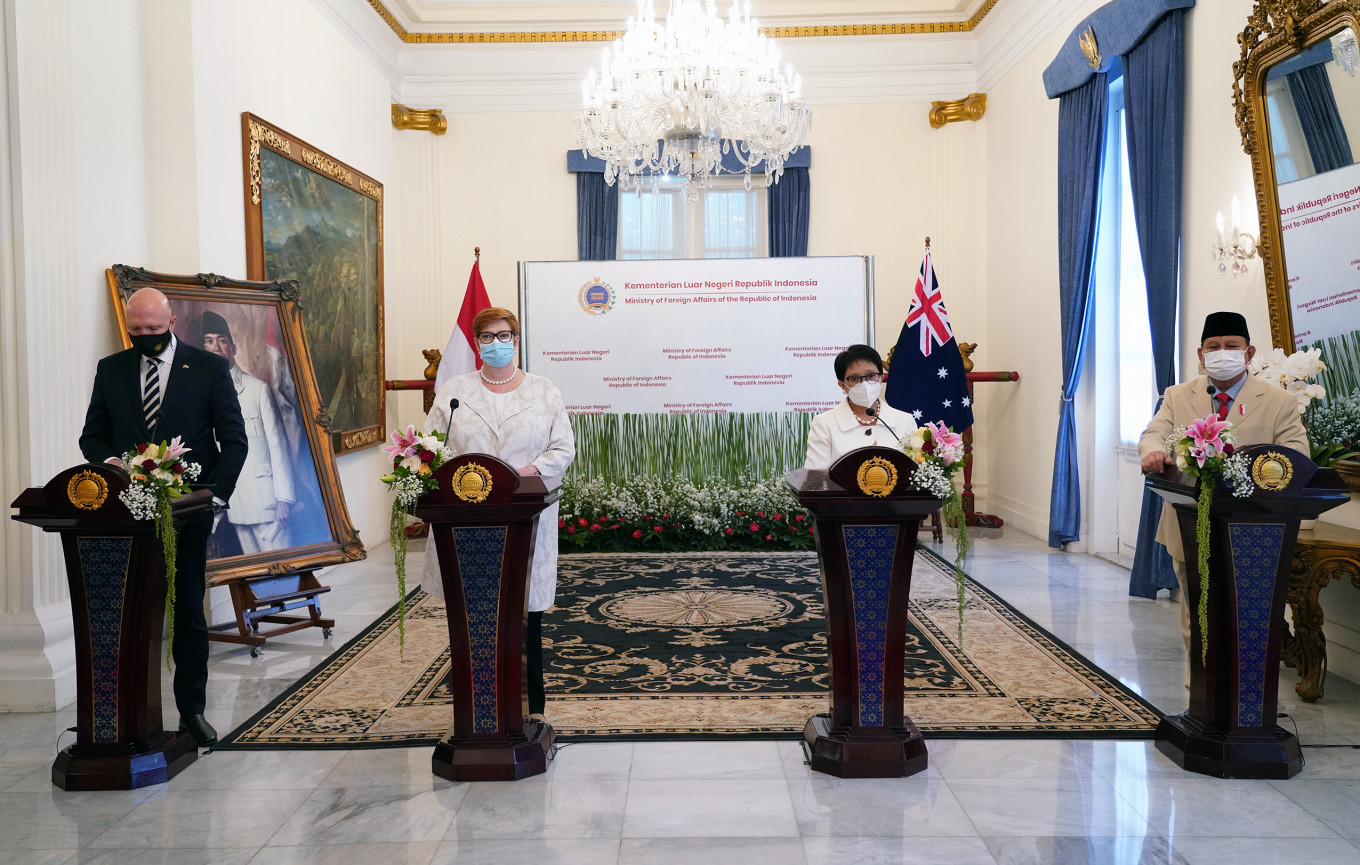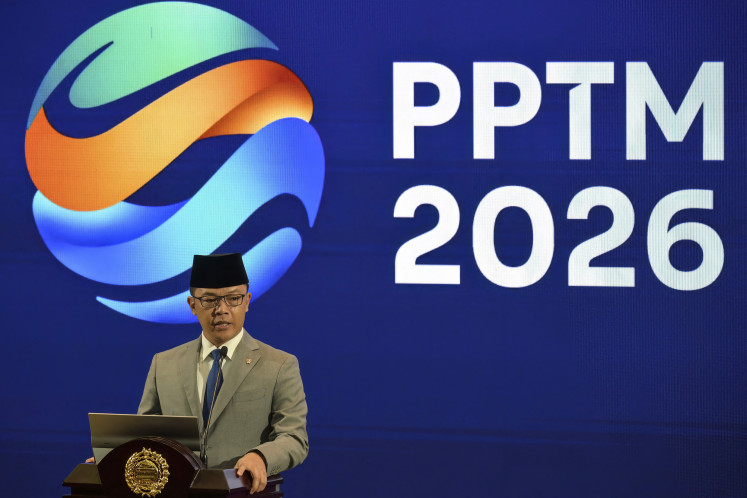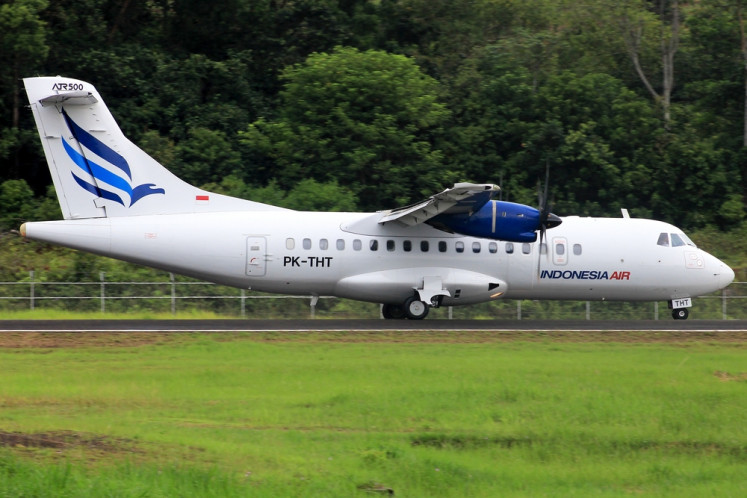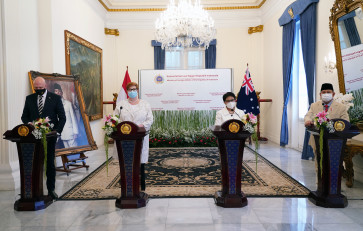Popular Reads
Top Results
Can't find what you're looking for?
View all search resultsPopular Reads
Top Results
Can't find what you're looking for?
View all search resultsIndonesia has legitimate reasons to worry about Aussie nuke subs
Because Australia will be the first country without nuclear weapons to develop such capabilities, the acquisition of nuclear submarine technology may set a dangerous precedent.
Change text size
Gift Premium Articles
to Anyone
 Indonesian Defense Minister Prabowo Subianto (right), Indonesian Foreign Minister Retno LP Marsudi (second right), Australian Foreign Minister Marise Payne (second left) and Australia Defense Minister Peter Dutton attend a media briefing following their meeting at the Foreign Ministry in Jakarta on Sept. 9. (REUTERS/Indonesian Foreign Ministry)
Indonesian Defense Minister Prabowo Subianto (right), Indonesian Foreign Minister Retno LP Marsudi (second right), Australian Foreign Minister Marise Payne (second left) and Australia Defense Minister Peter Dutton attend a media briefing following their meeting at the Foreign Ministry in Jakarta on Sept. 9. (REUTERS/Indonesian Foreign Ministry)
I
n response to Australia’s decision to acquire nuclear-powered submarines under the Australia, United Kingdom and United States Security Partnership (AUKUS), Indonesia has reiterated its principled position in regard to the geopolitical rivalry in the region. Indonesia was the first country in the region to remind Australia of its regional obligations to maintain peace and security while also emphasizing the obligation of all other parties concerned to respect international law.
This standpoint also reaffirms that in managing its great power relations, Indonesia maintains an “equidistant” approach. In its quest for regional stability, Indonesia has worked hard to avoid being dragged into geopolitical tensions or being forced into partisan positions. It is not in Indonesia’s interest to be in the middle of competition between great powers.
Such acquisition of nuclear submarines raises concerns that an arms race characterized by increasing power projection capabilities in the region may be imminent. This new strategic posture is clearly intended to bolster up deterrence in contested areas in the Indo-Pacific. These kinds of endeavors to build up powerful military prowess are likely to trigger and attract further counterreactions.
In response to this challenge, other powers in the region may decide to compete and intensify their own military buildup. As a result, direct conflict among the great powers of the region becomes more probable.
Considering this, Indonesia has called on Australia to maintain its commitments toward regional peace, stability and security in accordance with the Treaty of Amity and Cooperation (TAC), to which Australia acceded in 2005. As a code of conduct governing interstate relations in the region, the TAC requires Australia to cooperate with countries, both within and outside Southeast Asia, in the furtherance of world peace, stability and harmony. In line with the spirit of Southeast Asia as the Zone of Peace, Freedom and Neutrality, any action that may escalate tension and may lead to arms competition in the region needs to be avoided.
Australia and other parties concerned in the Indo-Pacific need to engage in dialogue in order to peacefully settle any differences among them. Under the TAC, the state parties “shall have the determination and good faith to prevent disputes from arising”. In cases of disputes likely to disturb regional peace and harmony, they are also obliged to refrain from the threat or use of force.
Regional peace and harmony may only be maintained if Australia and any other parties concerned also continue to uphold international law, in particular, the 1982 United Nations Convention on the Law of the Sea (UNCLOS). In spite of the political dynamics of the strategic competition, it remains imperative that the rule of law at the international level is respected. It will make the effort to manage the tension in the region more predictable and legitimate.

















